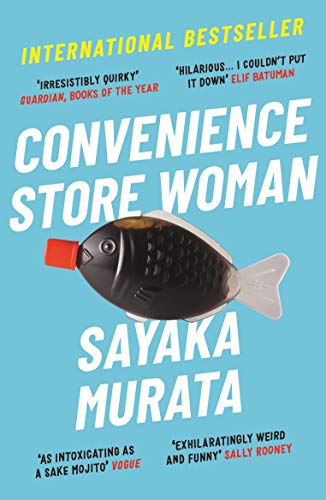... there was a detailed manual that taught me how to be a store worker, and I still don’t have a clue how to be a normal person outside that manual. [loc. 182]
Keiko Furukura is thirty-six and has worked in the same convenience store (open 24 hours a day, 7 days a week) for all her adult life. She is aware that she is different, an outsider: she constantly watches her colleagues and customers, mimicking their behaviour, in order to fit in -- to make others comfortable . She grew up believing that she needed to be 'cured', and feels that she's found the place she belongs, the place where she can excel.
Society, however, does not agree. Her sister would rather she was 'normal'; her colleagues think she is odd, and exclude her from their social activities; she has never had (nor wanted) a lover or a husband or a child. Or a pet (which becomes relevant).
No diagnostic terms are used in this novel. Keiko is neurodivergent, could be regarded as somewhere on the autism spectrum, and has a lack of empathy that might, under certain circumstances, be dangerous to others. The story is told in the first person, a straightforward account of Keiko's experience. Keiko sees other people clearly, constantly comparing her own behaviour with theirs. When a male colleague becomes interested in a relationship with her, she's initially excited and optimistic. But what price normality, eh?
I'm still thinking about this book, and about how happy I was that Keiko didn't take the 'easy road' to conformity. I'm aware I am missing aspects of the story because I haven't grown up in the same culture. I suspect there are also nuances lost in translation, like the repeated mentions of 'eliminating foreign objects', which felt like a translation of a snappier, commonplace figure of speech.
(Petty gripe: I wish the translator had inserted commas before 'I thought', 'I realised' etc.)
Read for the 'Set in Japan or by a Japanese Author' rubric of the 2020 Reading Women Challenge. Female translator (Ginny Tapley Takemori) too! I enjoyed this a great deal: it's poignant, closely observed, and often very funny.

No comments:
Post a Comment